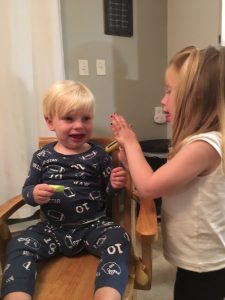The Role of a Commentary in Earned Media Outreach
In the big, fast-moving world of health care communications, there’s such a flood of news and information that it can seem almost impossible to make your client’s voice stand out above the noise of the crowd. But it’s more important than ever to try to find ways for their voice to be heard, which is why we are paying more and more attention to the power of the well-crafted and well-placed commentary.
The commentary is an effective communications tool to allow your client to display their expertise in a conversational, accessible manner. Finding a home for the commentary in an outlet that represents their industry can highlight your client’s qualifications in their field. And the personal nature of the commentary also positions your client as someone whose viewpoint demands attention. By writing a commentary for your client, it allows them to enter the conversation du jour in an organic and outstanding way.
I had the opportunity to explore the power of the commentary to its fullest potential earlier this spring. Our client was looking to increase awareness of their annual scientific meeting in Washington, D.C. After discussing their goals for the meeting, which included elevating their reputation, attracting media attention and promoting the important discussions at their meeting, we decided to add a commentary into our earned media strategy and outreach.
As public relations professionals, we know that a commentary is an opportunity to play to our author’s strengths. It’s an ideal vehicle for showcasing their unique perspective. When speaking with the author about her goals for the piece, we concerned ourselves with the “why?” of the commentary as much as the who, what, where and when.
Though a compelling commentary should always be supported by proven research, it’s also an opportunity to have a conversation with the audience. A commentary focuses more on the author’s personal interpretation of research than on the facts themselves. Because of this, the author can inject more of her personal character into the piece. This human touch serves to answer why her analysis deserves a place in the conversation.
Placing this commentary in a popular medical outlet before the meeting helped the speaker establish her credibility in her field by displaying the depth and breadth of her knowledge. It also showcased the kind of high-quality work that would be discussed at the meeting. This served to elevate the client’s reputation as a don’t-miss attraction at the meeting and gained the author a foothold in some of the most closely followed conversations of the day.



